Latest News
Taliban: Mullah Ibrahim Sadar Named New Military Chief

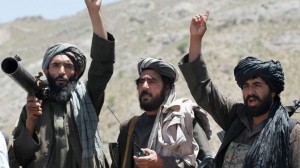 The Taliban have appointed a new military chief as the insurgents try to gain ground rather than talk peace under a new leadership, Taliban officials said in telephone interviews over the weekend.
The Taliban have appointed a new military chief as the insurgents try to gain ground rather than talk peace under a new leadership, Taliban officials said in telephone interviews over the weekend.
They said that the appointment of Mullah Ibrahim Sadar, once a close ally of Taliban founder Mullah Mohammed Omar, heralds a commitment to confrontation at a time when multiple governments are trying to coax the Taliban to the negotiating table.
Sadar is a battle-hardened commander, who gained prominence among Taliban foot soldiers following the movement’s overthrow in 2001. The two officials both spoke on condition of anonymity because they were not authorized to speak publicly for the Taliban.
Sadar’s appointment coincides with an uptick in Taliban attacks against Afghan security forces. The United States has sent additional troops to Afghanistan’s southern Helmand province, where its capital, Lashkar Gah, is under pressure. The provincial council head Kareem Atal earlier said roughly 80 percent of Helmand is already under Taliban control.
So far this month, Taliban fighters have attacked Afghan security forces in northern Kunduz province, briefly taking control of a district headquarters. The militants also overran a district in northern Baghlan province and in eastern Paktia province. Meanwhile, in eastern Nangarhar province, Taliban militants are fighting pitched battles with security forces. Afghanistan’s Ministry of Defense says its security forces are waging operations in 15 provinces.
Mohammad Akbari a member of Afghanistan’s High Peace Council, which is tasked with talking peace with insurgent groups, said there has been no progress in talks since Taliban leader Mullah Akhtar Mansour was killed in a U.S. drone strike in May in Pakistan. Mansour was succeeded by Mullah Haibatullah Akhundzada, and the notorious Haqqani network gained a prominent role in the leadership structure.
“I can’t see any green light toward peace by the Taliban for Afghanistan and instead we have seen an increase in their fighting in the provinces,” Akbari told The Associated Press.
Since Mansour’s death, Pakistan’s Interior Ministry has launched a stepped-up campaign to verify the identity of roughly 1.5 million Afghans living in Pakistan, many possessing Pakistani identity cards, some legally obtained and others illegally acquired. Mansour was carrying a Pakistani passport and identity card under an alias.
The crackdown has resulted in the withdrawal of thousands of suspicious identity cards. Pakistan’s Interior Minister Chaudhry Nisar Ali Khan said that in the last four years, roughly 80,000 suspicious identity cards have been revoked. He didn’t have a figure of the number of cards withdrawn in the latest campaign.
Taliban officials say their fighters, whose families are living in Pakistan, are getting caught up in the crackdown — forcing them to find shelter in Afghanistan. The officials said as a result, in order to accommodate their fighters, they need to expand their territory for practical reasons in addition to their standing military goals.
Pakistan has been bitterly criticized by the Afghan government for not doing more to arrest and expel Taliban fighters from its territory — particularly the Haqqani network, which is blamed by Afghanistan for many of the most brutal attacks. Pakistan, meanwhile, has carried out military operations in its tribal regions that border Afghanistan, and accuses Afghanistan of harboring its own Taliban insurgents who have been carrying out attacks in Pakistan.
Following last week’s militant attack on the American University in Kabul, the Afghan government sent three telephone numbers to Pakistan’s military, believed to belong to those involved in planning the attack, seeking Pakistan’s assistance in tracking down and arresting the culprits. The assault killed 13 people and wounded dozens more.
AP

Latest News
Iranian official: Only vulnerable points of Afghanistan’s border will be walled and fenced
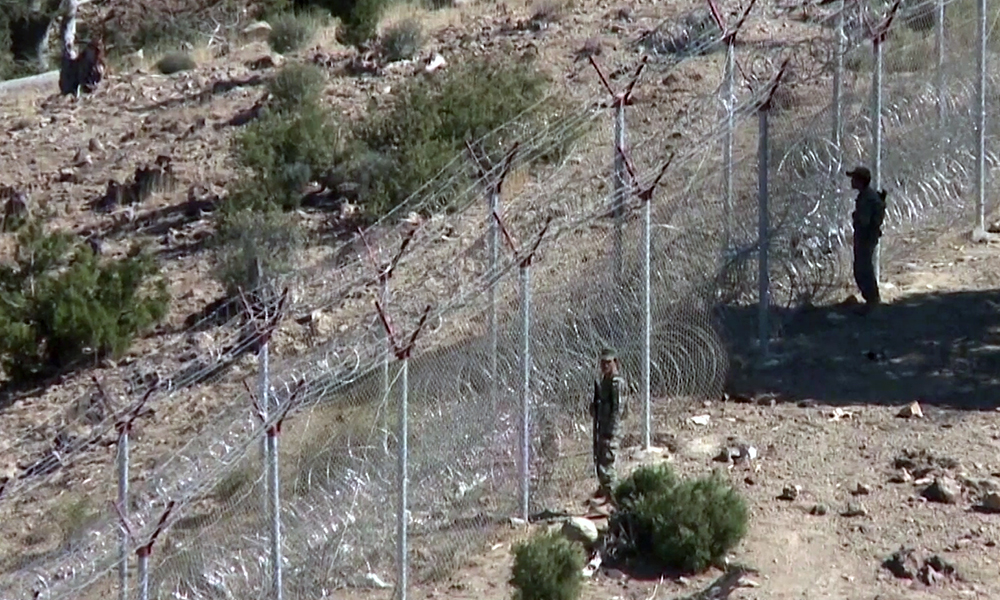
An Iranian security official has said that the entire border of Iran with Afghanistan will not be fenced, rather barriers will be created only at vulnerable points.
Iranian army has announced that the plan to create barriers at the border with a four-meter concrete wall, barbed wire and fence will be implemented within three years.
“In some northwestern and eastern borders, there are threats from the other side of the borders that we are countering,” said Qassem Rezaei, Iran’s deputy police commander.
He added that drug trafficking, human trafficking, and even terrorist infiltration may take place through these borders.
Meanwhile, the Minister of Interior of Iran Ahmad Vahidi has announced that over 1.3 million illegal foreign nationals have returned to their country in the past year.
He added that illegal citizens should leave Iran as they are not allowed to stay.
Latest News
Hanafi meets WHO regional director, stresses need for cooperation
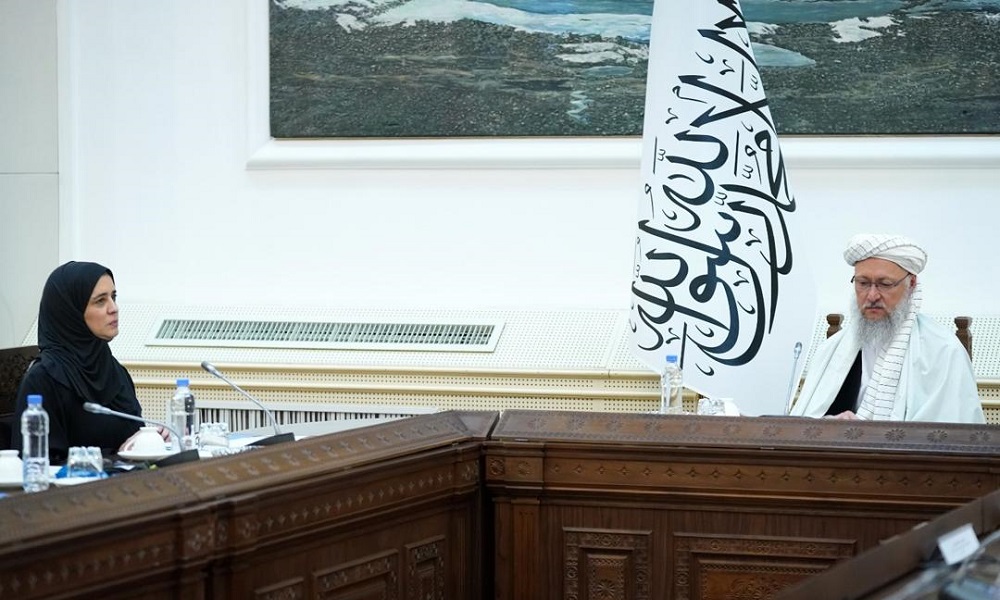
Deputy Prime Minister for Administrative Affairs Abdul Salam Hanafi on Sunday met with WHO Regional Director for the Eastern Mediterranean, Hanan Balkhy, and called for the organization’s cooperation including in the establishment of clinics in remote areas and training of specialists.
According to a statement released by his office, Hanafi pointed out that since the Islamic Emirate in Afghanistan regained power, there has been progress in various fields, including the fight against drug production and trafficking, the roundup and treatment of drug addicts, the eradication of corruption and nationwide security.
He asked the WHO to hand over Afghanistan’s seat to the representative of the Islamic Emirate and restore Afghanistan’s membership in meetings of the executive board and leadership meetings of the Mediterranean region.
Hanafi also called for the cooperation of international organizations in providing alternative livelihoods for poppy farmers and in providing assistance to flood victims.
While stressing that the eradication of polio is one of the priorities of the Islamic Emirate, Hanafi asked the WHO to activate polio diagnosis laboratories and supply vaccines, establish a cancer treatment center, prevent malnutrition among children and provide safe drinking water.
According to the statement, WHO official Balkhy said in the meeting that the health issue is non-political and one of the priorities of the organization.
She pointed to the achievements of the Islamic Emirate in various fields and expressed hope that better conditions will be provided for Afghans in the health and education sector.
Balkhy explained that WHO, together with other international organizations and the European Union, has a three-year project that includes the establishment of health centers in different provinces of Afghanistan.
She also expressed her appreciation for the efforts of the Islamic Emirate in the fight against polio and added that she will discuss the issue of providing alternative livelihoods for Afghan farmers with the WHO and other relevant organizations.
Latest News
OIC summit urges IEA to respect girls’ right to education
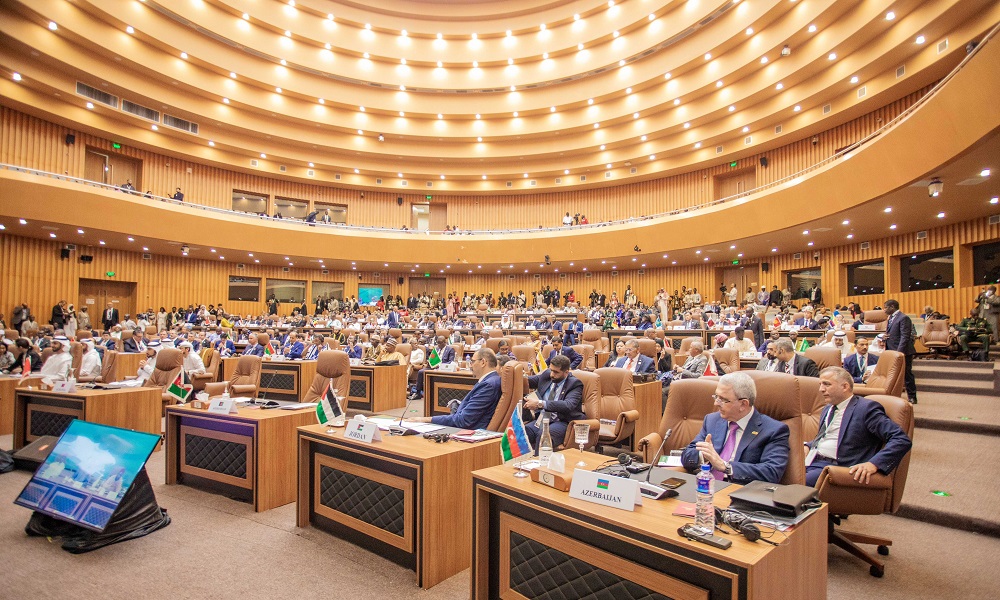
The 15th summit of the Organization of Islamic Cooperation (OIC) in Gambia on Sunday called on the Islamic Emirate of Afghanistan (IEA) to respect Afghan girls and women’s right to education and work.
In a declaration, OIC described the right to education and work as the fundamental rights of Afghan girls and women, and called for more communication with the IEA authorities on these issues.
Additionally, the participants emphasized the need for more efforts to address the challenges related to ethnic groups, drugs, terrorism, and social issues to ensure inclusive governance and sustainable peace and stability in Afghanistan.
“We also emphasize the need to make more efforts to address the challenges associated with ethnic groups, terrorism, drugs and social aspects for inclusive governance to achieve sustainable stability,” the declaration said.
Delegations from the 57 OIC member states attended the conference, organized by the Organization of Islamic Cooperation under the theme “Enhancing unity and solidarity through dialogue for sustainable development.”.
The summit was also attended by an IEA delegation.
-

 Sport5 days ago
Sport5 days agoSorkh Poshan Khafi and Khadim FC winners in their ACL matches
-
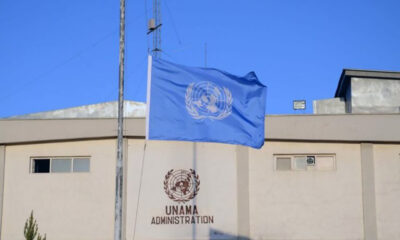
 Latest News5 days ago
Latest News5 days agoUNAMA issues latest rights report, notes ongoing challenges for women, girls and media
-
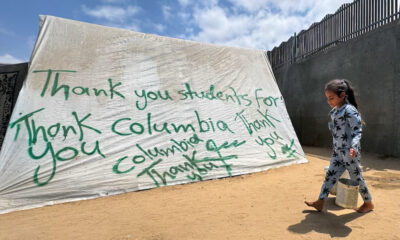
 World4 days ago
World4 days agoWhy Palestinians can count on American students but not Arab allies to protest
-

 Sport4 days ago
Sport4 days agoAbu Muslim and Attack Energy win in ACL matches
-

 Sport5 days ago
Sport5 days agoBairstow, Rossouw help Punjab beat Chennai in IPL
-

 Sport5 days ago
Sport5 days agoFour Afghans included in Refugee Olympic Team for Paris 2024
-
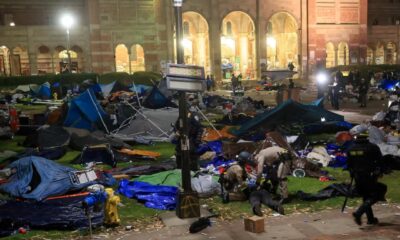
 World5 days ago
World5 days agoCalifornia police flatten pro-Palestinian camp at UCLA, arrest protesters
-

 Latest News5 days ago
Latest News5 days agoFive dead, 24 injured in traffic accident in Samangan















